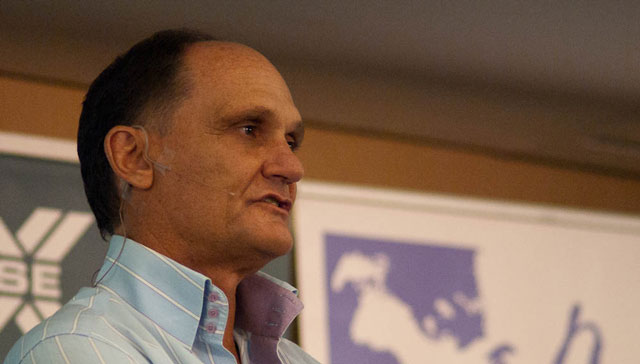 If there was anyone still doubting that the price war, triggered in part by communications regulator Icasa’s cuts in call termination rates, is starting to take its toll on South Africa’s mobile industry, they would have been disabused of that notion this week with the news that the Reunert-owned Nashua Mobile is to close down.
If there was anyone still doubting that the price war, triggered in part by communications regulator Icasa’s cuts in call termination rates, is starting to take its toll on South Africa’s mobile industry, they would have been disabused of that notion this week with the news that the Reunert-owned Nashua Mobile is to close down.
As many as 600 people could lose their jobs — and that excludes the people in the company’s channels that will be affected by the move.
Nashua Mobile, with almost a million customers on its books, is one of two remaining independent cellular service providers that emerged when the industry started in the mid-1990s. The other is Altech Autopage Cellular, which is part of the listed Altron group.
Reunert announced this week that it had agreed to sell Nashua Mobile’s Vodacom and MTN customer bases back to the two mobile operators. The situation had become untenable for Nashua Mobile: the big operators, facing growing margin squeeze as voice tariffs tumble, have become ruthless in cutting costs. And that’s meant slashing incentives paid to the channel, including independent service providers. The carnage this is causing is now evident.
One has to wonder what happens now to Autopage Cellular, which will soon be the last remaining independent, of nearly two dozen originally licensed by Vodacom and MTN. All Altron will say is that it is in a closed period and can’t make any statements about Autopage’s performance. The group will publish its 2014 financial results on 14 May. We’ll know then if it’s managing, somehow, to weather the storm.
The present state of affairs has been coming for some time. For many years, Vodacom and MTN were able to avoid a damaging price war. There was an unwritten rule, it seemed, that they wouldn’t go nuclear with each other on price. The industry prospered, allowing the operators to stuff their distribution channels with incentives. Investors reaped the rewards. Indeed, it was a virtuous cycle for everyone except consumers, who had to swallow high prices.
Then the status quo was upended.
Icasa began cutting termination rates — the fees the operators charge each other to carry calls between their networks. The result has been dramatic. Icasa created a situation where smaller operators could start cutting their retail prices in an effort to build market share.
Vodacom’s founding CEO, Alan Knott-Craig, made a dramatic return to the industry as boss of Cell C in 2012. To say that he upset the applecart would be an understatement. Last year, he famously and hubristically declared: “I take a little bit of responsibility for how this industry was built. I [was] proud of this industry, but not any more. I will make it my damn business to fix this industry.”

If it was his intention for rates to come tumbling down, it’s job well done. This week, MTN fired the latest salvo in a price war that Cell C began two years ago when it slashed its rates to 99c/minute. The yellow operator said it was chopping its standard prepaid tariff from R1,20 to just 79c/minute. Although the new rate is “promotional” for three months — in other words, it has not been lodged as a regulated tariff with Icasa — MTN said it intends making it permanent.
MTN’s move is bad news for Cell C, which is creaking under a mountain of debt. The recent decision by the high court to implement cuts to termination rates for the next six months, from 40c to 20c/minute — despite Icasa’s regulations being declared unlawful — gave Cell C something of a reprieve as it benefits from an “asymmetric” regime skewed in its favour. If MTN’s latest move forces it to cut its rates to 79c, too, it will lose that advantage. MTN may be hoping that it’s just check-mated its struggling rival.
The high court has ordered Icasa to come up with new termination rates before the end of September. MTN and Vodacom are going to put immense pressure on the regulator to produce a regime that is more favourable to them. If they are not successful, expect more blood-letting.
- Duncan McLeod is editor of TechCentral. Find him on Twitter
- This column was first published in the Sunday Times




